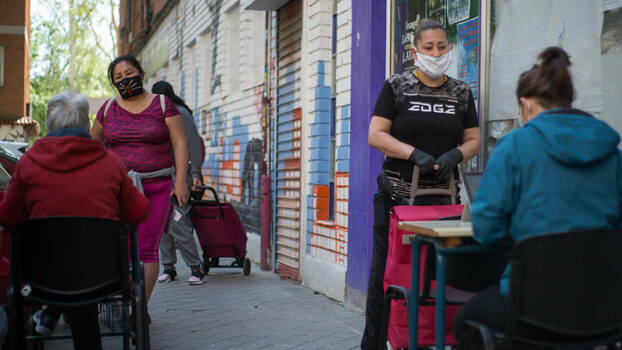
Costas Lapavitsas is professor of economics at the School of Oriental and African Studies, University of London and a member of the European Research Network on Social and Economic Policy.
Lluís Torrens is Director of Social Innovation at the Barcelona City Council and active in the Basic Income Network, Spain.
Sergi Cutillas is a member of the European Research Network on Social and Economic Policy and Ekona, Spain.
Pablo Cotarelo is a member of the European Research Network on Social and Economic Policy and Ekona, Spain.
The pandemic crisis struck the world economy at a time of weakened financialization and flagging capital accumulation. Leading nation states have engaged in unprecedented monetary and fiscal measures to confront it. Nonetheless, the crisis has resulted in very deep recessions, increasing unemployment, and worsening of the already huge inequalities of neoliberal capitalism. The division of the world economy into core and periphery, including in Europe, has grown further entrenched.
Southern European governments tried to support household income through heavily conditioned bureaucratic policies, with problematic outcomes for working people and the poor. In this context, it is vital to consider a policy of Pandemic Basic Income (PBI) that could sustain individual and household income, boost aggregate demand, and support employment. PBI would be accompanied by redistributive tax reform, thus further shifting the social balance in favour of workers and the poor. This paper empirically demonstrates the operation and likely outcomes of PBI with reference to Spain.